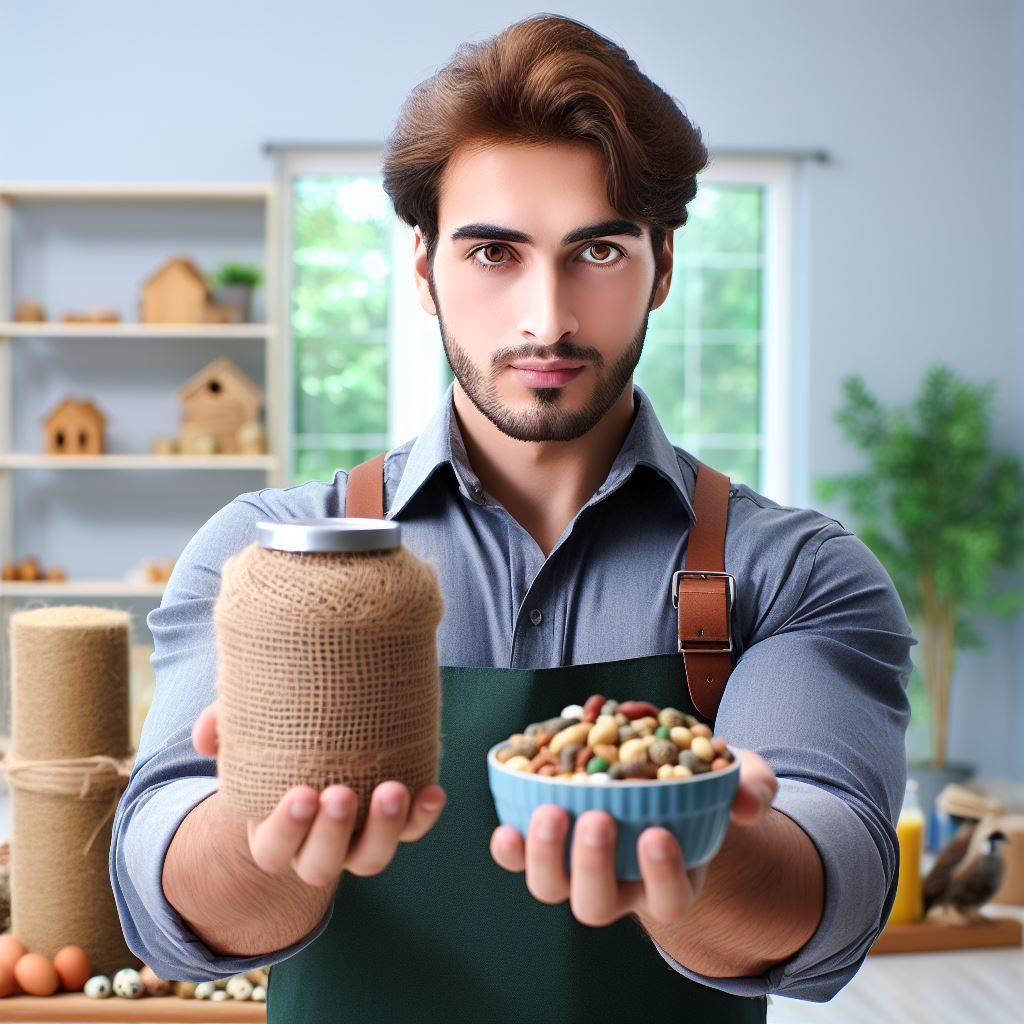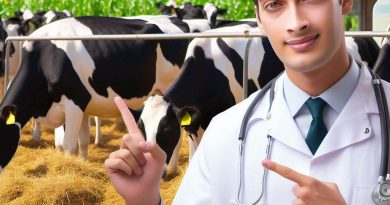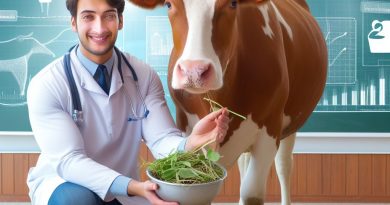Quail Nutrition: What to Feed for Best Results
Last Updated on January 25, 2024
Introduction to Quail Nutrition
Importance of Proper Nutrition for Quails
- Optimal Growth: Nutritious diets fuel quail growth, ensuring robust development and rapid maturity.
- Reproductive Success: Adequate nutrients support healthy egg production, leading to successful reproduction.
- Disease Resistance: Well-balanced diets enhance quail immunity, guarding against diseases and infections.
Role of Nutrition in Ensuring Best Quail Results
- Egg Quality: Proper nutrition results in high-quality eggs with strong shells and rich nutrient content.
- Weight Maintenance: Well-fed quails maintain ideal body weight, crucial for overall health and productivity.
- Feather Health: Nutrient-rich diets contribute to vibrant feathering, indicating a quail’s overall well-being.
- Improved Fertility: Essential nutrients boost quail fertility, optimizing breeding success for sustainable quail populations.
Basically, understanding and providing the right nutrition are fundamental for achieving the best results in quail farming.
Understanding Quail Dietary Needs
Quail nutrition is a crucial aspect of their overall health, growth, and reproductive success.
Understanding their dietary needs at different stages of life is essential for providing them with the best nutrition and achieving optimal results.
Basic Nutritional Requirements
- Protein: Protein is a vital component of a quail’s diet. High-quality protein sources, such as insects, worms, and game bird feed, should be provided to meet their protein needs. Protein is necessary for growth, feather development, and reproduction in quails.
- Carbohydrates: Carbohydrates provide quails with the necessary energy for metabolic processes and physical activity. Grains, seeds, and fruits can be included in their diet to fulfill their carbohydrate requirements.
- Fats: Quails require healthy fats in their diet. Fats play a crucial role in energy storage, insulation, and the absorption of fat-soluble vitamins. Good sources of fat for quails include seeds, nuts, and certain oils.
- Vitamins and Minerals: Quails need a balanced intake of vitamins and minerals to maintain overall health and immunity. Including a variety of fruits, vegetables, and commercial game bird feeds can help provide them with essential nutrients.
Age-Specific Nutritional Needs
- Chicks: Young quail chicks have specific nutritional requirements. They need a diet high in protein to support their rapid growth and feather development. Starter feeds formulated specifically for quail chicks are readily available and offer the necessary nutrition for their early stages.
- Growers: As quails grow, their protein requirements decrease slightly. However, their diet should still consist of a nutrient-dense feed to ensure proper growth and development. A balanced grower feed with lower protein content can be provided to meet their needs.
- Layers: Quails in the laying phase have additional nutritional needs. They require extra calcium for eggshell formation. Including calcium-rich sources like oyster shell or crushed eggshells in their diet is essential. They also benefit from a diet rich in vitamins A and D for egg production.
- Breeders: Breeding quails have specific nutritional needs to support reproduction. These include a high protein content in their diet, as well as increased minerals such as calcium and phosphorus. A breeder feed formulated for optimum reproductive performance can meet these requirements.
Therefore, understanding the nutritional needs of quails is crucial for their overall well-being and achieving the desired results.
Providing them with a diet rich in protein, carbohydrates, fats, vitamins, and minerals supports their growth, feather development, and reproductive capabilities at different stages of life.
By meeting their age-specific nutritional needs, quails can thrive and exhibit optimal health and productivity.
Read: Duck Nutrition Guide: Feeding for Healthy Flocks
Components of an Ideal Quail Diet
When it comes to ensuring optimal health and performance of quails, a well-balanced diet should be given the utmost importance.
Providing the right components in their diet can greatly enhance their growth, egg production, and overall well-being.
In this section, we will discuss the key components of an ideal quail diet.
High-quality quail feed
One of the primary components of a quail’s diet is a high-quality quail feed.
Quail feeds available in the market are specifically formulated to meet the nutritional requirements of quails at different stages of their life.
These commercial quail feeds are convenient and can provide the necessary nutrients in the correct proportions.
If you prefer to make your own quail feed, there are several homemade quail feed recipes available online.
These recipes often include a combination of grains, seeds, and protein sources to ensure a well-rounded diet for your quails.
However, it is essential to ensure that the homemade feed meets all the necessary nutritional requirements.
Supplements and additives
In addition to high-quality quail feed, supplements and additives can play a vital role in enhancing quail nutrition and health.
- Calcium and phosphorus supplements: Quails require a good amount of calcium and phosphorus, especially during egg production. Providing a calcium supplement, such as crushed oyster shells or ground limestone, can help prevent eggshell abnormalities and ensure strong eggshells. Phosphorus supplements can also be added to balance the calcium-phosphorus ratio.
- Probiotics: Probiotics are beneficial bacteria that support gut health and aid in digestion. Adding probiotics to their diet can promote good gut flora and prevent common digestive issues. Probiotics can be given in the form of commercial products or natural sources, such as fermented feed or yogurt.
- Omega-3 fatty acids: Including omega-3 fatty acids in the quail’s diet can have numerous health benefits. Omega-3 fatty acids are known to improve feather quality, boost immune function, and enhance egg quality. Flaxseed, chia seeds, or fish oil can be added to the feed as a source of omega-3 fatty acids.
- Greens and vegetables: Adding a variety of greens and vegetables to the quail’s diet can provide essential vitamins, minerals, and antioxidants. Leafy greens like spinach, kale, and watercress are rich in nutrients and can be offered as a supplement to their regular feed. Other vegetables like carrots, bell peppers, and broccoli can also be included to provide additional nutritional benefits.
Most importantly, ensuring an ideal quail diet involves providing high-quality quail feed along with necessary supplements and additives.
Commercial quail feeds and homemade recipes can be used as primary sources of nutrition, while supplements like calcium, phosphorus, probiotics, omega-3 fatty acids, and greens and vegetables can further enhance their diet.
By offering a well-balanced diet, quails can thrive, exhibit optimal growth, and produce excellent quality eggs.
Read: Alpaca Feed Tips: Nutrition for Fleece Quality

Factors to Consider When Choosing Quail Feed
Quality of Ingredients
Choosing the right feed for your quails is crucial for their overall health, growth, and productivity.
The factors mentioned above can greatly influence the selection process.
Remember that the quality of ingredients is paramount, as it directly affects the quails’ well-being.
Look for feed that is not only nutritionally balanced but also free from harmful additives and preservatives.
Cost-effectiveness
While cost-effectiveness is essential, prioritize the long-term benefits of providing high-quality feed.
Consider the potential savings that come from keeping your quails healthy, as poor nutrition can lead to diseases and reduced productivity in the long run.
Availability
Additionally, ensure the availability of the chosen feed.
It should be accessible in your area or easily sourced to maintain a consistent and uninterrupted supply for your quails.
Regularly check with local suppliers or online retailers to make sure you can fulfill your quails’ nutritional needs.
Specific Nutritional Content
Evaluate the specific nutritional content of the feed to cater to your quails’ dietary requirements.
A well-balanced combination of protein, carbohydrates, vitamins, and minerals is necessary for their growth and overall health.
Consider factors such as age, breed, and purpose to select feed with the appropriate nutritional content.
Considerations for Organic or Specialty Quail Diets
For those seeking organic options, choose certified organic feed that is free from pesticides and genetically modified organisms.
Alternatively, specialty diets may be necessary for specific health conditions or production purposes.
Seek professional advice from a veterinarian or quail nutrition expert to ensure the best feed for organic or specialty diets.
In essence, when choosing quail feed, prioritize the quality of ingredients, cost-effectiveness, availability, specific nutritional content, and considerations for organic or specialty diets.
By taking these factors into account, you can provide your quails with the best nutrition for optimal results in growth, health, and productivity.
Read: Nutritional Needs of Turkeys: A Complete Guide
Feeding Practices for Optimal Quail Nutrition
Recommended feeding schedule
- It is crucial to establish a consistent feeding schedule for quails to maintain their nutritional needs.
- Feed them at the same time every day to promote healthy digestion and avoid digestive issues.
- Dividing their daily feed into multiple smaller meals can help prevent overeating.
Quantity of feed per quail
Chicks
- Provide a high-quality starter feed specifically formulated for quail chicks.
- Feed them approximately 1/4th to 1/3rd cup of feed per bird every day.
Growers
- Transition the quails to a grower feed when they reach 6-8 weeks of age.
- Increase the feed quantity to about 1/3rd to 1/2 cup per quail daily.
Adults
- Quail adults require a maintenance feed suitable for their age and activity level.
- Provide around 1/2 cup of feed per bird per day to meet their nutritional requirements.
Importance of fresh, clean water
- Quails need access to fresh and clean water at all times.
- Change the water every day to ensure it is free from contaminants.
- Provide water in a way that prevents spilling and contamination by feces or feed.
Avoiding overfeeding and wasting feed
- Monitor the quails’ feed intake and adjust the quantity accordingly to prevent overfeeding.
- Avoid leaving feeders filled with excessive feed for extended periods, as it may spoil.
- Clean up any spilled feed promptly to prevent attracting pests or creating unhygienic conditions.
Read: Llama Feeding Basics: Health & Nutrition Tips
Monitoring Quail Health and Adjusting Diets
Regular health assessments
Regularly assessing the health of quails is essential to ensure their overall well-being.
Monitoring their weight, feather quality, and behavior can help identify potential health issues.
Recognizing signs of malnutrition or deficiencies
Being vigilant about the signs of malnutrition or deficiencies in quails can prevent adverse consequences.
Watch out for reduced appetite, weight loss, abnormal feather growth, or decreased egg production.
Consulting a veterinarian or nutritionist to address specific concerns
If you notice any concerning signs or suspect nutritional imbalances, seek professional advice promptly.
A veterinarian or nutritionist can provide recommendations tailored to your quails’ specific needs.
Adjusting diets based on quail performance and productivity
Regularly evaluating quail performance and productivity is crucial for determining if diet adjustments are necessary.
Keep track of egg production, growth rates, and overall health to optimize their feed and nutrition.
Monitoring quail health is a critical aspect of ensuring their proper nutrition.
By performing regular health assessments, you can identify any potential issues early on.
Assess the quail’s weight, feather quality, and general behavior in order to spot any signs of malnutrition or deficiencies.
Reduced appetite, abnormal feather growth, weight loss, or decreased egg production are all indicators of potential problems.
When you notice these signs, seek the advice of a veterinarian or nutritionist to address the specific concerns.
They will be able to offer professional guidance tailored to your quail’s needs.
Depending on the diagnosis, they may suggest adjusting the quail’s diet to address deficiencies or imbalances.
Monitoring quail performance and productivity is also crucial to ensure they are receiving the best nutrition.
Keeping track of their egg production, growth rates, and overall health will help you evaluate whether any adjustments to their diet are necessary.
For example, if their egg production decreases or growth seems stunted, it may be an indication that their current diet lacks essential nutrients.
By adjusting their diet accordingly, you can optimize their feed and nutrition, leading to improved performance and a healthier quail population.
Conclusion
Recap of Key Points Discussed
- Nutrient-Rich Diets: Quail thrive on well-balanced, nutrient-rich feeds promoting optimal health and productivity.
- Growth and Reproduction: Proper nutrition is vital for robust growth, successful reproduction, and disease resistance.
Emphasizing the Role of Proper Nutrition
- Quality Egg Production: The link between nutrition and high-quality eggs underscores the importance of feeding practices.
- Overall Well-Being: Nutrition directly influences weight maintenance, feather health, and fertility, ensuring peak quail performance.
Encouragement for Quail Farmers
- Prioritize Nutrition: Elevate your quail farming game by prioritizing nutrition; the key to achieving the best results.
- Consistent Monitoring: Regularly assess and adjust diets to meet evolving nutritional needs, securing a thriving quail flock.
Quail farmers, take charge of your flock’s destiny through thoughtful nutrition – the cornerstone of success!


